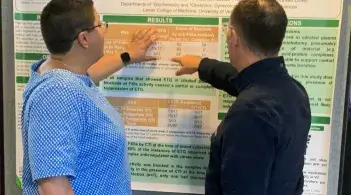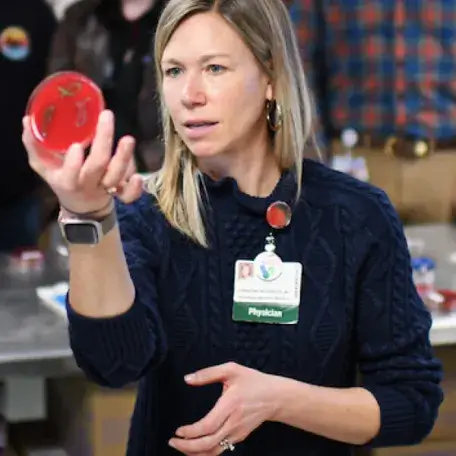Our Research Objectives
Our Research Objectives
To advance knowledge about basic mechanisms that govern cellular physiology and to gain insight into their disruptions in disease. Our overarching goals are to implement improved diagnostics and provide better treatment strategies to our patients through:
- New Knowledge, New Diagnostics and New Treatments
To enable academic excellence in the Department of Pathology and Laboratory Medicine so that we are (inter)nationally recognized as a top Academic Department through:
- High Impact Publications
- Principal Investigators on Major Grants
- Serving on National Advisory Committees
- Organize Conferences
- Inventors
- Multi Institution Collaborations
The Research Mission

Clinical and Basic Research
- Annual Research Day
- Monthly Research Council Meetings

Research Support
- Internal Grant Program
- Twice Yearly Poster Presentations

Supporting New Investigators
- Mentoring plans for Junior Faculty
- Seminar Series, Journal Club, and Grand Rounds
The Research Council
Council Members
Research Council Chair: Yvonne Janssen-Heininger
Clinical Research Members: Director- Martin Chang, Ashley Volaric, John DeWitt, Residents: Jennifer Bloomer, Brittney Boles, Neel Hegde, Nicholas Taylor, Kenrick Wysong
Laboratory for Clinical Biochemistry Research: Division Chief- Peggy Doyle, Member: Nels Olson
Redox Biology and Pathology: Division Chief- Vikas Anathy, Member: Albert van der Vliet, Trainees: Nate Shannon and Mona Ruban


